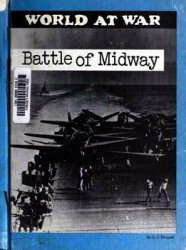In May 1307 Pope Clement met with the Templar and Hospitaller Grand Masters at his court in France where they submitted their own views on the proposed crusade and the unification of the orders. The comments made by the Grand Master of the Hospitallers, Fulk of Villaret, about the merging of the orders do not survive, but it seems that he was opposed as his proposal for the crusade assumed that the Hospitallers and the Templars would operate independently. Fulk favoured a small initial expedition to the East, a policy the Hospitallers in fact pursued in June of that very same year when they seized the island of Rhodes, which had been a Byzantine possession, an enterprise that gave them a well-fortified and independent state of their own. A large crusade, went Fulk’s argument, should follow only after forward bases had been secured.
But after the Templars’ experience of the failure at Ruad, James of Molay opposed a small-scale expedition and wanted an all-out crusade. This meant calling on the kings of England, Germany, Sicily, Spain and France to raise an army of between 12,000 and 15,000 knights and 5000 soldiers on foot. This enormous force was to be raised secretly and transported on Venetian, Genoese and other Italian ships to Cyprus, from where it was to be launched against the coast of Palestine. James of Molars plan was based on a serious and realistic assessment of the military problems facing a crusade aimed at the recovery of the Holy Land, though he knew that this was not in line with popular opinion, which wanted the rhetoric of crusade without the effort or commitment, and moreover it flew in the face of Philip’s hypocritical intentions.
On the matter of uniting the two orders, James of Molay was also unaccommodating. He admitted that there could be some advantages in the merger, principally that a united order would be stronger. But he also pointed out that the question had been raised before, only to be rejected. Competition between the Templars and the Hospitallers made the orders more effective, he said, as it provided the stimulus for each to outdo the other; nor did one duplicate the functions of the other, rather they were complementaries, placing different emphases on providing alms, transporting men and supplies across the sea, protecting pilgrims and Crusaders, and making war against the infidel.
Unfortunately, for the Templars there was no hope of the sort of mass crusade envisioned by James of Molay. The Hospitallers had shown a keener awareness of current realities by going for the lesser option, one which all but guaranteed their survival by creating a state of their own on Rhodes. The Templars once again were left in limbo and were now increasingly the victims of attacks on their seeming idleness.
The Templars, wrote Rostan Berenguier, a poet of Marseilles at around this time, ‘waste this money which is intended for the recovery of the Holy Sepulchre on cutting a fine figure in the world; they deceive people with their idle trumpery, and offend God; since they and the Hospital have for so long allowed the false Turks to remain in possession of Jerusalem and Acre; since they flee faster than the holy hawk; it is a pity, in my view, that we do not rid ourselves of them for good.’
After his meeting with the Pope, James of Molay travelled to Paris where on 12 October 1307 his apparent intimacy with the royal family was evident for all to see when he walked in procession holding one of the pall cords at the funeral of Philip IV’s sister, Catherine of Courtenay. Other Templar leaders, usually based in Cyprus, were also in Paris at this time. However, at dawn on the following day, Friday 13 October, James of Molay was arrested by the king’s men, led by William of Nogaret.
Philip’s order for the arrest of the Templar leadership in Paris and of every Templar throughout France had been circulated secretly the month before: ‘A bitter thing, a lamentable thing,’ went the opening lines of the order, dated 14 September, ‘a thing which is horrible to contemplate, terrible to hear of, a detestable crime, an execrable evil, an abominable work, a detestable disgrace, a thing almost inhuman, indeed set apart from all humanity’




 World History
World History









